Comic Artist Gregg Schigiel Hosts Workshop
February 22, 2019
Working with the library department, comic artist and illustrator Gregg Schigiel led a workshop for students on Thursday, Feb. 14. Schigiel, who has done work for Nickelodeon and Marvel Comics, along with creating his own graphic novel series Pix, held the seminar with the intent to teach students about the process of storytelling and graphic novels, and let them play around with the idea of telling stories through pictures.
“It’s always great to see that many people paying attention and listening to the stuff that I’m saying,” Schigiel said. “Seeing some of the work they were doing was very impressive, a very smart group. It’s ideas that I don’t often get to play around with, with people who are willing to learn, so it’s very gratifying to have people who are engaged and walk that path with me.”
Schigiel began by showing the students the step-by-step process he’s gone through when creating his graphic novels. Through this, students learned about the fundamentals of storytelling and how to write and draw compelling characters.
“In a vast way, technology has changed so dramatically, so that the thresholds are lower,” Schigiel said. “Not that comics was ever a huge threshold, but you have to print something. You don’t have to do that now, the internet exists. What has not changed, is the craft of doing this. Telling a story is still telling a story, no matter what the technology is. Writing a novel is writing a novel, whether it’s in the 1800s versus writing a novel now, maybe you’re not using a quill and parchment, but it’s still the same job of conceiving an idea, writing that idea, telling that story”
After listening to the lecture, students participated in an interactive workshop with Schigiel. Drawing prompts for various emotions and scenes were suggested, and everyone drew the prompt however they wanted, following Schigiel’s advice.
“He talked about stuff you wouldn’t really think about normally,” Abigail Holden ‘19 said. “Like how if you’re picking a dynamic pose, sometimes you want to draw out the full action in different frames, and then pick the most dynamic action. Like how in a punch you don’t want to pick the wind up, because it’s not dynamic, you want the follow through of the punch.”
While practicing different ways of interpreting a drawing prompt, the students were given the same panel descriptions Schigiel receives when he illustrates comic books. After the students drew, they compared with Schigiel’s drawings, and they discussed how the differences in their drawings impacted the story.
“We got to draw our own versions of a Spongebob scene,” Meaghan Morrissey ‘21 said. “I love Spongebob and I got to grow up with it, and seeing someone who draws Spongebob for a living professionally is really cool.”
The primary purpose of the workshop wasn’t to teach the students how to draw masterpieces. Instead, Schigiel focused on introducing them to the idea of communicating a story using dramatic pictures, and drawing their scenes in a way that would catch a reader’s attention.
“It’s theoretical in certain ways, because it’s not about drawing, it’s about storytelling,” Schigiel said. “For example, one of the things [drawing prompts] was draw a character in pain. That’s such a wide definition. Pain could be a stomach ache, pain could be a bruised knee, pain could be emotional pain. Walking around, everybody had a different interpretation, but they were all approaching the problem and drawing these gestures and communicating with visuals. So while some kids are really laboring over the drawings, what it’s really all about is ‘Can you communicate an idea with an image.’”
Schigiel has been in the comic book business for decades and while the core values have remained the same, the industry has grown. Through other forms of media such as film and television, the business has found a wider audience and encouraged young creators to revolutionize the art form.
“There are colleges now where you can major in comics,” Schigiel said. “That’s insane. When I went to college there was one class on comics, it was called writing about comics, and it was amazing that that existed. Everything else I had to do as an independent study, I had to find a teacher who would sponsor this one thing. The acceptance of comics as a medium where people can explore is so much more vast now than when I was in high school. The viability, the acceptance of it as a thing, is pretty tremendous.”
Schigiel would like to thank the librarians for inviting him to speak, as well as all the students and teachers who participated in his workshop.
“It was more than worthwhile,” Ross Quigley ‘19 said. “It was pretty incredible. I think that the school should strive to do stuff like that as often as possible because it’s incredibly useful to see people who have practical experience like him and share the same fields of interest as the students.”


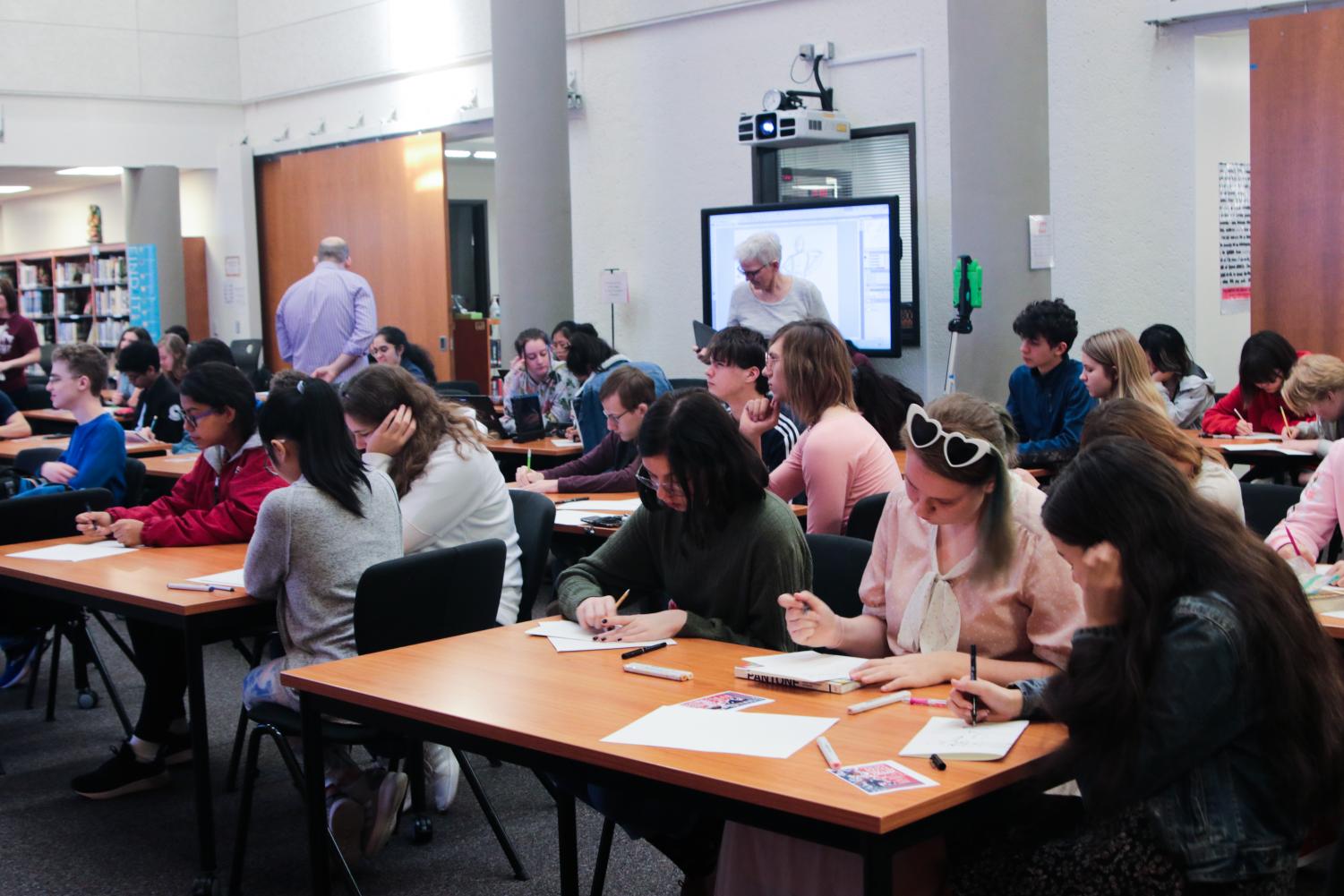
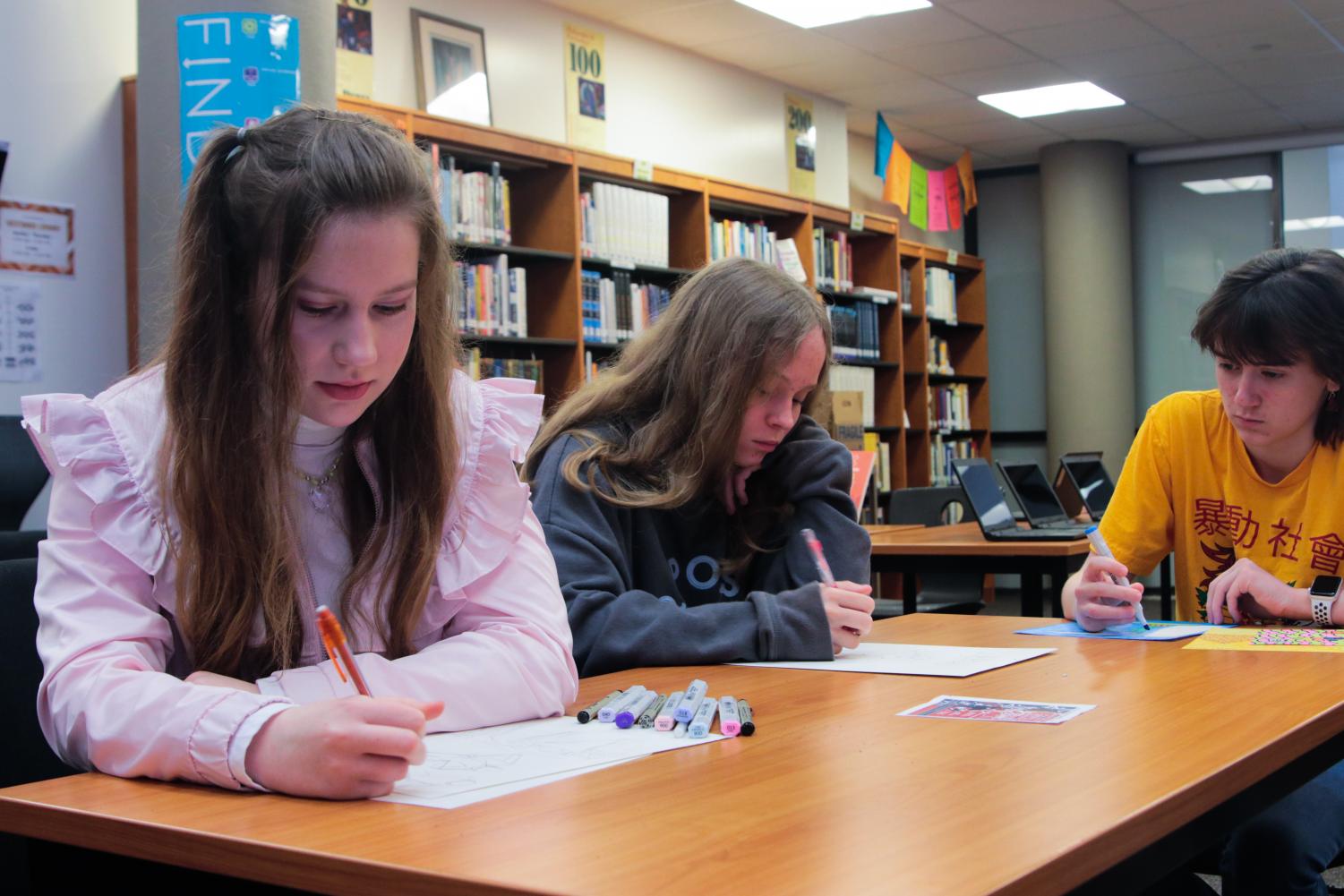
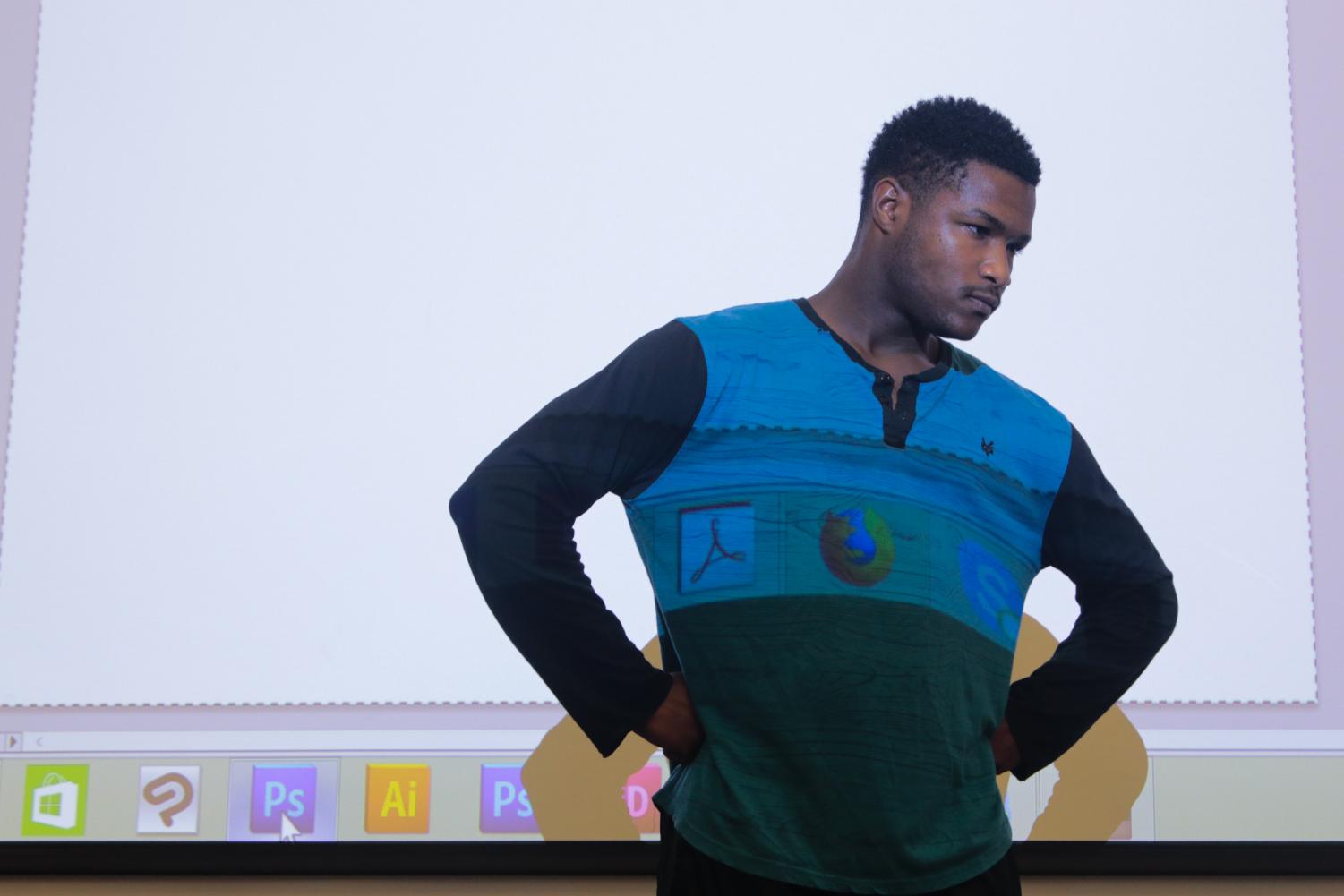
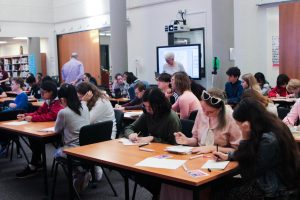

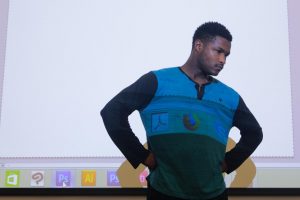
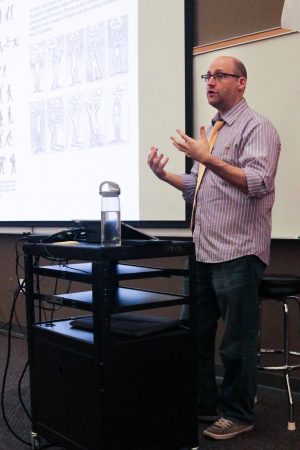


Heather Dickson • Mar 26, 2019 at 9:26 am
It would have been nice if the lecture was offered to more than just the art students. It is our job as teachers, not just to educate, but to build pathways to the future. I have students who intend to go into the business of comics and graphic design, and this would have been perfect for them to attend.